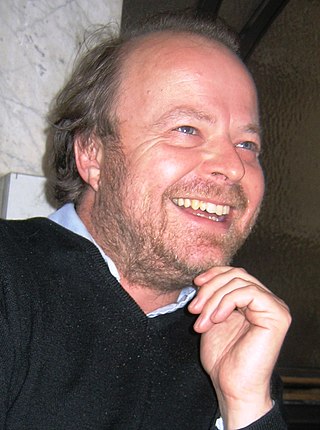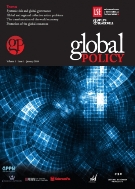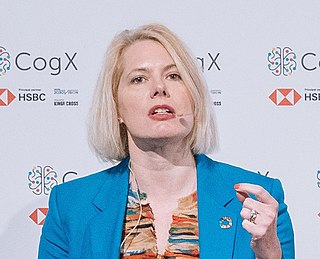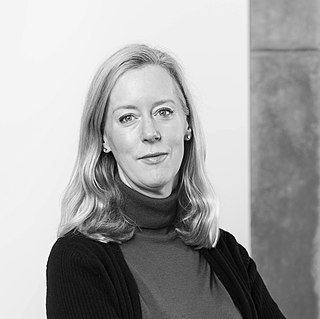
E-democracy, also known as digital democracy or Internet democracy, is the use of information and communication technology (ICT) in political and governance processes. The term is believed to have been coined by digital activist Steven Clift. E-democracy incorporates 21st-century information and communications technology to promote democracy; such technologies include civic technology and government technology. It is a form of government in which all adult citizens are presumed to be eligible to participate equally in the proposal, development and creation of laws.

The Oxford Internet Institute (OII) is a multi-disciplinary department of social and computer science dedicated to the study of information, communication, and technology, and is a part of the Social Sciences Division of the University of Oxford, England.
New Public Management (NPM) is an approach to running public service organizations that is used in government and public service institutions and agencies, at both sub-national and national levels. The term was first introduced by academics in the UK and Australia to describe approaches that were developed during the 1980s as part of an effort to make the public service more "businesslike" and to improve its efficiency by using private sector management models.
Andrew Graham is a British political economist. He is currently Executive Chair of the Europaeum and Chair of the Academic Council of the Europaeum, Senior Fellow of the Oxford Internet Institute, Trustee of Reprieve, and an Honorary Fellow of Balliol College, Oxford and of St Edmund Hall, Oxford.

Keith Martin Dowding is Distinguished Professor of Political Science and Political Philosophy, School of Politics and International Relations, Research School of Social Sciences at the Australian National University, Canberra, Australia. He was in the Government Department at the London School of Economics, UK in 2006. He has published widely in the fields of public choice, public administration, public policy, British politics, comparative politics, urban political economy, positive political theory and normative political philosophy. His work is informed by social and rational choice theories. He edited the SAGE Publishing Journal of Theoretical Politics from 1996 to 2012.
Stuart Weir is a British journalist, writer, and Visiting Professor with the Government Department at the University of Essex. He was previously the Director of the Democratic Audit, formerly a research unit of the University of Essex. Weir was a founder of the constitutional reform pressure group Charter 88, and was editor of the weekly political magazine the New Statesman from 1987–91, having previously been deputy editor of New Society, which merged with the New Statesman in 1988. Weir was editor of the Labour Party's monthly magazine New Socialist in the mid-1980s.

Patrick John Dunleavy, is Emeritus Professor of Political Science and Public Policy within the Government Department of the London School of Economics (LSE). He was also Co-Director of Democratic Audit and Chair of the LSE Public Policy Group. In addition Dunleavy is an ANZSOG Institute for Governance Centenary Chair at the University of Canberra, Australia.
Mark Bevir is a British philosopher of history. He is a professor of political science and the Director of the Center for British Studies at the University of California, Berkeley, where he currently teaches courses on political theory and philosophy, public policy and organisation, and methodology. He is also a Professor in the Graduate School of Governance, United Nations University (MERIT) and a Distinguished Research Professor in the College of Arts and Humanities, Swansea University.
The first idea of a digital administrative law was born in Italy in 1978 by Giovanni Duni and was developed in 1991 with the name teleadministration.

Christopher Cropper Hood is a visiting Professor of the Blavatnik School of Government at the University of Oxford, and an Emeritus Fellow of All Souls College, Oxford. Hood was Gladstone Professor of Government at All Souls College, Oxford, from 2001 to 2014, and Director of the ESRC Research Programme Public Services: Quality, Performance and Delivery from 2004 to 2010. His books include The Limits of Administration (1976), The Tools of Government (1983), The Art of the State and A Government that Worked Better and Cost Less?. He chaired the Nuffield Council on Bioethics' Working Party on medical profiling and online medicine from 2008 to 2010.
Colin Hay is Professor of Political Sciences at Sciences Po, Paris and Affiliate Professor of Political Analysis at the University of Sheffield, joint editor-in-chief of the journal Comparative European Politics. and Managing Editor of the journal New Political Economy.
John S. Dryzek is a Centenary Professor at the Centre for Deliberative Democracy and Global Governance at the University of Canberra's Institute for Governance and Policy Analysis.

Global Policy is a peer-reviewed academic journal based at the Global Policy Institute, School of Government and International Affairs, Durham University and focusing on the "point where ideas and policy meet", published in association with Wiley-Blackwell.

Roderick Arthur William Rhodes, usually cited as R. A. W. Rhodes, is a British professor of political science.
Joni Lovenduski, is Professor Emerita of Politics at Birkbeck, University of London.
Michael Saward, is an Australian and British professor of politics and international studies at the University of Warwick, He was formerly Reader in Politics at Royal Holloway, University of London, and Professor and Head of Department in politics and international studies at the Open University.

Gina Neff is the Executive Director of the Minderoo Centre for Technology and Democracy at the University of Cambridge. Neff was previously Professor of Technology & Society at the Oxford Internet Institute and the Department of Sociology at the University of Oxford. Neff is an organizational sociologist whose research explores the social and organizational impact of new communication technologies, with a focus on innovation, the digital transformation of industries, and how new technologies impact work.

Ann Macintosh is Emeritus Professor of Digital Governance at the University of Leeds.
Pari Esfandiari is the co-founder and president of the Global TechnoPolitics Forum and CEO of Pario. She is a member of the At Large Advisory Committee (ALAC) at the ICANN, representing European region (Euralo), as well as a member of the GeoTech Action Council at the Atlantic Council. In addition, she serves at the APCO Worldwide’s International Advisory Council. She was a non-resident senior fellow at the Atlantic Council.

Karen Bakker is a Canadian author, researcher, and entrepreneur known for her work on digital transformation, environmental governance, and sustainability. A Rhodes Scholar with a PhD from Oxford, Bakker is a professor at the University of British Columbia. In 2022–2023 she will be on sabbatical leave at Harvard, as a Harvard Radcliffe Institute Fellow. She is the recipient of numerous awards, including a Guggenheim Fellowship, Stanford University's Annenberg Fellowship in Communication, Canada's "Top 40 Under 40", and a Trudeau Foundation Fellowship.










